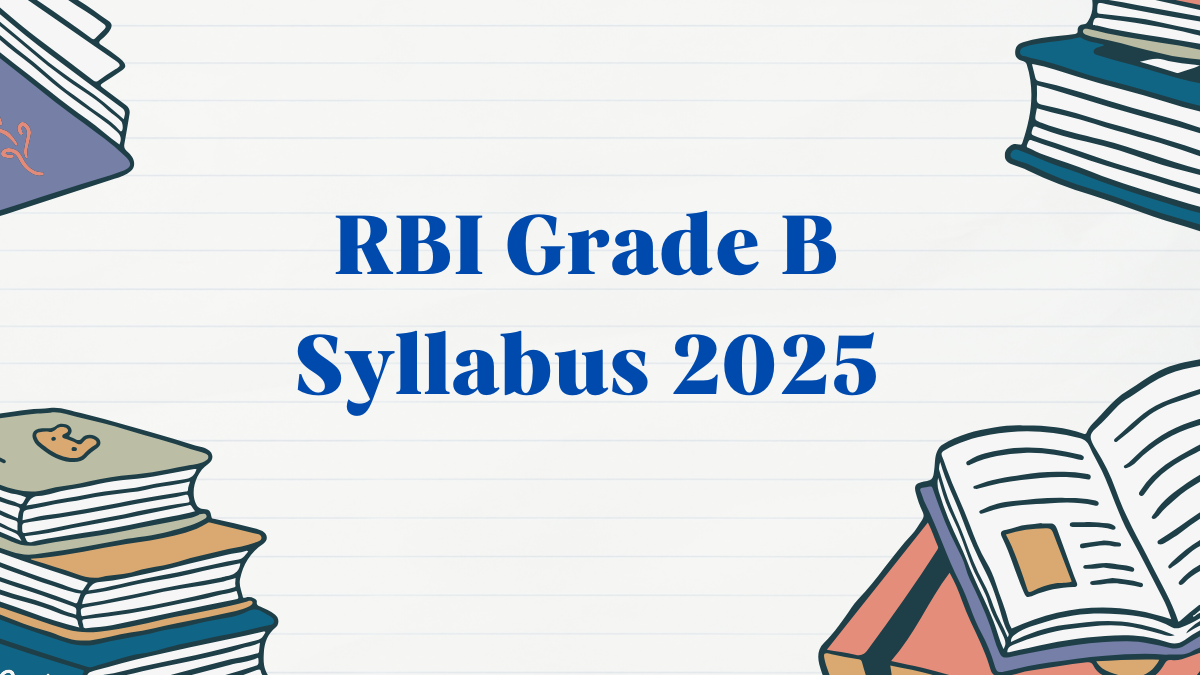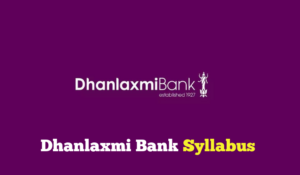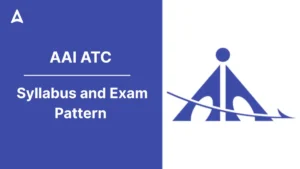Candidates preparing for the RBI Grade B 2025 exam must thoroughly understand the latest syllabus and exam pattern to plan their strategy effectively. The RBI Grade B examination is held in three phases: Phase I (Prelims), Phase II (Mains), and the Interview. Each phase tests different skills, ranging from general awareness and quantitative aptitude to finance, management, and economic concepts. Knowing the detailed section-wise syllabus for both Phase I and Phase II will help candidates focus on the right topics and boost their chances of qualifying for this highly competitive post. RBI releases the syllabus and pattern details along with its official notification every year.
RBI Grade B Syllabus
The RBI Grade B 2025 exam offers a detailed and systematic selection process, broken down into three distinct stages: Phase 1, Phase 2, and the Interview. Phase 1 is designed to test candidates’ aptitude with multiple-choice questions in areas such as English, General Awareness, Quantitative Aptitude, and Reasoning. Phase 2 delves deeper, with both objective and descriptive papers covering Economic and Social Issues, English Writing Skills, and General Finance & Management. Finally, the Interview phase evaluates the candidate’s overall fitness for the role, considering both technical knowledge and personal qualities.
RBI Grade B Syllabus and Exam Pattern 2025
Phase I serves as a preliminary stage to clear the RBI Grade B Exam 2025, in which candidates are assessed through objective-type questions in areas such as general awareness, quantitative aptitude, reasoning, and English language proficiency. Moving on to Phase II, the difficulty increases with both objective and descriptive type questions that test in-depth knowledge in economics, social issues, finance, management, and writing skills. For applicants aspiring for specialized roles in DEPR (Department of Economic and Policy Research) and DSIM (Department of Statistics and Information Management), expertise in economics, statistics, and quantitative analysis is crucial to stand out and succeed.
| RBI Grade B Syllabus | |
|---|---|
| Organization Name | Reserve Bank of India |
| Exam Name | RBI Grade B 2025 |
| Category | Syllabus |
| Mode of Exam | Online |
| Selection Process | Phase 1 (Objective), Phase 2 (Descriptive), Phase 3 (Interview) |
| Negative Marking | 0.25 marks (in objective type) |
| Language of Paper | English and Hindi |
| Official Website | rbi.org.in |
RBI Grade B Exam Pattern 2025
To perform well in the RBI Grade B exam, candidates must focus on critical areas such as Quantitative Aptitude, Reasoning Ability, English, and General Awareness. The exam pattern varies depending on the specific role being applied for, such as General (DR), DSIM, or DEPR. For a thorough understanding of the syllabus and exam structure tailored to each position, candidates should refer to the comprehensive guide offered in the article.
RBI Grade B Exam Pattern for General (DR)
Here the candidates can check the detailed RBI Grade B Exam Pattern for all the stages of the examination. As mentioned above the RBI Grade B Exam has three stages for General (DR). Here is the detailed RBI Grade B Exam Pattern.
RBI Grade B Phase 1 Exam Pattern 2025
The Phase 1 exam of the RBI Grade B 2025 follows a set pattern with 200 multiple-choice questions, each worth one mark. The total exam marks are 200, and candidates have 120 minutes (2 hours) to complete it. A penalty of 0.25 marks is deducted for each wrong answer. The exam also has sectional cut-offs, so candidates must clear both individual section cut-offs and the overall cut-off to move to the next stage.
| RBI Grade B Exam Pattern For Phase 1 |
|||
| Name Of The Section | No. Of Questions | Marks | Duration |
| English Language | 30 | 30 | 25 Minutes |
| General Awareness | 80 | 80 | 25 Minutes |
| Quantitative Aptitude | 30 | 30 | 25 Minutes |
| Reasoning | 60 | 60 | 45 Minutes |
| Total | 200 | 200 | 120 Minutes |
Note- The marks scored by candidates in the RBI Grade B Phase 1 exam will not be considered in the final merit list. The merit list will be based on the marks scored by candidates in the Phase 2 exam and the interview round.
RBI Grade B Phase 2 Exam Pattern
The exam pattern of the RBI Grade B exam is both objective and descriptive. Candidates can check the RBI Grade B Phase 2 exam pattern from the table provided below. RBI Grade B exam pattern for phase 2 consists of Economic and Social Issues, English, and General Finance & Management.
| RBI Grade B Exam Pattern For Phase 2 | ||||
| Name Of Paper | Type Of Paper | Time | No. Of Qs | Marks |
| Paper-I: Economic and Social Issues |
50% Objective | 30 Minutes | 30 Objective Questions | 50 |
| 50% Descriptive | 90 Minutes | 4 Descriptive Questions | 50 | |
| Paper-II: English (Writing Skills) |
Descriptive | 90 Minutes | 3 | 100 |
| Paper-III: General Finance & Management |
50% Objective | 120 Minutes | 30 Objective Questions | 50 |
| 50% Descriptive | 4 Descriptive Questions | 50 | ||
RBI Grade B Exam Pattern for DEPR
The RBI Grade B (DR) – DEPR selection process includes an Online/Written Examination followed by an Interview. Candidates must clear each phase to move forward in the recruitment process. Below are the key details of the exam pattern:
Phase I
- Paper I: Objective Type (Economics)
- Paper II: Descriptive Type (English)
- Candidates must achieve the minimum aggregate marks in both papers to qualify for Phase II.
Phase II
- Paper I: Descriptive Type (Economics)
- Paper II: Descriptive Type (Economics)
Interview Round
- The Interview carries 75 marks and plays a crucial role in the final selection.
- The final merit list is prepared based on candidates’ performance in Phase I, Phase II, and the Interview.
| RBI Grade B Exam Pattern For DEPR | |||
| Phase | Name Of Paper | Duration | Maximum Marks |
| Phase I | Paper – I Objective Type (on Economics)
Paper – II English – Descriptive |
120 Minutes | 100 |
| 120 Minutes | 100 | ||
| Phase II | Paper – I Descriptive Type (on Economics) (Question paper displayed on computer, answers to be written on paper)
Paper – II Descriptive Type (on Economics) (Question paper displayed on the computer, answers to be written on paper) |
120 Minutes | 100 |
| 120 Minutes | 100 | ||
| Total | 400 | ||
RBI Grade B Exam Pattern For DSIM
The selection process for RBI Grade B (DR) – DSIM comprises an Online/Written Examination followed by an Interview. Candidates must qualify each stage to progress further in the recruitment process. Below are the detailed exam pattern highlights:
Examination Structure
- Paper I: Objective Type (Statistics)
- Paper II: Descriptive Type (Statistics)
- Paper III: Descriptive Type
Important Details
- Candidates must secure the minimum aggregate marks in Paper I to be eligible for shortlisting in Paper II and Paper III.
- The Interview round carries 75 marks and is a key component of the final selection process.
- The final merit list is prepared based on candidates’ performance in Paper I, Paper II, Paper III, and the Interview.
| RBI Grade B Exam Pattern for DSIM | |||
| Paper | Duration | Marks | |
| Phase I | Paper-I Statistics (Objective Type) | 120 minutes | 100 |
| Phase II | Paper-II Statistics (Descriptive Type)
(Question paper displayed on a computer, answers to be written on paper) |
180 minutes | 100 |
| Paper-III English (Descriptive) (To be typed with the help of a keyboard) |
90 minutes | 100 | |
| Total | 300 | ||
RBI Grade B Syllabus 2025
To succeed in the RBI Grade B exam, having a well-organized study strategy is essential. The exam spans crucial subjects, including General Awareness, English, Quantitative Aptitude, and Reasoning. In Phase II, candidates are expected to focus on more specialized areas such as Economic and Social Issues, Finance and Management, along with descriptive writing. The exam structure varies depending on the role—General (DR), DSIM, and DEPR. For General (DR), candidates face questions in Reasoning, Quantitative Aptitude, English Language, and General Awareness. To streamline your preparation, refer to the detailed RBI Grade B Syllabus 2025 and Exam Pattern outlined below.
RBI Grade B Syllabus for DR (General)
RBI Grade B Syllabus 2025 for Phase 1 has four subjects. You can access here the section-wise syllabus for RBI Grade B.
- English Language
- General Awareness
- Quantitative Aptitude
- Reasoning Ability
RBI Grade B Phase I Syllabus For General (DR)
The RBI Grade B 2025 Phase I General (DR) exam consists of four sections: English Language, Reasoning Ability, Quantitative Aptitude, and General Awareness. Below is a complete breakdown of the topics covered in each section for the Phase 1 examination.
| RBI Grade B Syllabus For Phase I General (DR) | |||
|---|---|---|---|
| English Language | Reasoning Ability | Quantitative Aptitude | General Awareness |
| Reading Comprehension | Puzzles | Data Interpretation | Indian Banking Systems |
| Cloze Test | Seating Arrangements | Inequalities (Quadratic Equations) | Indian Financial Systems |
| Fillers | Direction Sense | Number Series | Govt. Schemes and Policies |
| Error Detection | Blood Relation | Approximation or Simplification | Current Affairs |
| Vocabulary based questions | Syllogism | Data Sufficiency | Static Awareness |
| Sentence Improvement | Order and Ranking | Miscellaneous Arithmetic Problems | Monetary Plans |
| Jumbled Paragraph | Coding-Decoding | Quantity Comparison (Q1 & Q2) | National Institutions |
| Phrase Replacement/ Phrase Correction | Machine Input-Output | Banking Terms | |
| Match The Column | Inequalities | ||
| Word Swap | Alpha-Numeric-Symbol Series | ||
| Word Rearrangement | Data Sufficiency | ||
| Idioms | Logical Reasoning (Passage Inference, Statement, Assumption, Conclusion, Argument) |
||
| Paragraph /Sentences Restatement | |||
| Paragraph Based Questions | |||
| Paragraph Fillers | |||
RBI Grade B Phase II Syllabus For General (DR)
In the Phase 2 exam of the RBI Grade B officer, there are 3 Papers viz.
- Paper I (Economic and Social Issues)
- Paper II (English Writing Skills)
- Paper III (General Finance and Management)
We have shared the detailed updated RBI Grade B Syllabus for Phase 2.
RBI Grade B Syllabus For Phase II Paper 1 General (DR): Economic and Social Issues
The detailed topic-wise syllabus for RBI Grade B Phase 2 Paper I for Economic and Social Issues is provided below:
|
Syllabus For Economic and Social Issues |
|
| Category | Key Topics |
| Growth & Development | National Income & Per Capita Income |
| Poverty Alleviation & Employment | |
| Sustainable Development & Environment | |
| Economic Landscape | Economic History |
| Industrial & Labor Policy Changes | |
| Monetary & Fiscal Policy (Post-1991 Reforms) | |
| Economic Survey & Union Budget Priorities | |
| Financial System | Money & Financial Markets |
| Role of Banks & Reserve Bank of India | |
| Public Finance | |
| Political Economy’s Influence | |
| Economic Sectors | Industrial Developments |
| Importance of Agriculture | |
| Services Sector Growth | |
| Globalization | Opening Up of Indian Economy |
| Balance of Payments Explained | |
| Export-Import Policy | |
| International Economic Institutions (IMF, World Bank, WTO) | |
| Regional Economic Cooperation & International Issues | |
| Social Structure | India’s Multiculturalism |
| Demographic Trends & Analysis | |
| Urbanization & Migration Impact | |
| Gender Issues & Social Justice | |
RBI Grade B Syllabus For Phase II Paper 2 General(DR): English Writing Skills
The RBI Grade B Syllabus 2025 for Phase 2 Paper II will be descriptive. The paper on English shall be framed in a manner to assess the writing skills including expression and understanding of the topic
RBI Grade B Syllabus For Phase II Paper 3 General(DR): General Finance and Management
The RBI Grade B Syllabus 2025 for Phase 2 and Paper III includes General Finance and Management. We have shared the detailed topic-wise syllabus for the convenience of the aspirants:
|
Syllabus For Finance and Management |
|
| Category | Topics |
| Financial System | Structure and Functions Of Financial Institutions |
| Functions Of the Reserve Bank of India | |
| Banking System in India – Structure and Developments, Financial Institutions – SIDBI, EXIM Bank, NABARD, NHB, NaBFID etc. | |
| Recent Developments in the Global Financial System and its Impact on the Indian Financial System | |
| Role Of Information Technology in Banking and Finance | |
| Non-Banking System | |
| Developments in Digital Payments | |
| Financial Markets | Primary and Secondary Markets (Forex, Money, Bond, Equity, etc.), function, instruments, recent developments. |
| General Topics | Financial Risk Management |
| Basics of Derivatives | |
| Global financial markets and International Banking-broad trends and latest developments | |
| Financial Inclusion | |
| Alternate source of finance, private and social cost-benefit, Public-Private Partnership | |
| Corporate Governance in the Banking Sector | |
| The Union Budget – Concepts, approach and broad trends | |
| Basics of Accounting and Financial Statements- Balance Sheet, Profit and Loss, Cash Flow Statements, Ratio Analysis | |
| Inflation: Definition, trends, estimates, consequences, and remedies (control): WPI, CPI -components and trends; striking a balance between inflation and growth through monetary and fiscal policies. | |
| Management | Fundamentals of Management & Organizational Behaviour |
| Introduction to management; Evolution of management thought | |
| Management functions and Managerial roles | |
| Meaning & concept of organizational behaviour; Personality: meaning, factors affecting personality, Big Five model of personality | |
| Perception: concept, perceptual errors. Motivation: Concept, importance, Content theories and process theories | |
| Leadership: Concept, Theories | |
| Emotional Intelligence: Concept, Importance, Dimensions | |
| Analysis of Interpersonal Relationship | |
| Conflict: Concepts, Sources, Types, Management of conflict | |
| Organizational Development (OD) | |
| Ethics At The Workplace and Corporate Governance | |
| Meaning of ethics, why ethical problems occur in business | |
| Theories of ethics | |
| Ethical principles in Business | |
| Corporate Governance | |
| Communication | |
RBI Grade B Syllabus for DEPR
The syllabus for RBI Grade B (DR) DEPR is as per the specialization. The syllabus pertains to core economics and is generally similar to the syllabus for a Master’s Degree in economics.
| RBI Grade B Syllabus for DEPR | |
|---|---|
| Category | Topics |
| Financial System | Structure and Functions Of Financial Institutions |
| Functions Of the Reserve Bank of India | |
| Banking System in India – Structure and Developments, Financial Institutions – SIDBI, EXIM Bank, NABARD, NHB, NaBFID etc. | |
| Recent Developments in the Global Financial System and its Impact on the Indian Financial System | |
| Role Of Information Technology in Banking and Finance | |
| Non-Banking System | |
| Developments in Digital Payments | |
| Financial Markets | Primary and Secondary Markets (Forex, Money, Bond, Equity, etc.), function, instruments, recent developments. |
| General Topics | Financial Risk Management |
| Basics of Derivatives | |
| Global financial markets and International Banking-broad trends and latest developments | |
| Financial Inclusion | |
| Alternate source of finance, private and social cost-benefit, Public-Private Partnership | |
| Corporate Governance in the Banking Sector | |
| The Union Budget – Concepts, approach and broad trends | |
| Basics of Accounting and Financial Statements- Balance Sheet, Profit and Loss, Cash Flow Statements, Ratio Analysis | |
| Inflation: Definition, trends, estimates, consequences, and remedies (control): WPI, CPI -components and trends; striking a balance between inflation and growth through monetary and fiscal policies. | |
| Management | Fundamentals of Management & Organizational Behaviour |
| Introduction to management; Evolution of management thought | |
| Management functions and Managerial roles | |
| Meaning & concept of organizational behaviour; Personality: meaning, factors affecting personality, Big Five model of personality | |
| Perception: concept, perceptual errors. Motivation: Concept, importance, Content theories and process theories | |
| Leadership: Concept, Theories | |
| Emotional Intelligence: Concept, Importance, Dimensions | |
| Analysis of Interpersonal Relationship | |
| Conflict: Concepts, Sources, Types, Management of conflict | |
| Organizational Development (OD) | |
| Ethics At The Workplace and Corporate Governance | |
| Meaning of ethics, why ethical problems occur in business | |
| Theories of ethics | |
| Ethical principles in Business | |
| Corporate Governance | |
| Communication | |
RBI Grade B Syllabus for DEPR
The syllabus for RBI Grade B (DR) DEPR is as per the specialization. The syllabus pertains to core economics and is generally similar to the syllabus for a Master’s Degree in economics.
Phase 1: Paper 1 Objective Type (on Economics)
|
Economics |
|
| Module | Topics |
| Microeconomics | Theories of consumer’s demand; Production; Market Structures and Pricing; Distribution; and Welfare Economics |
| Macroeconomics | Theories of Employment, Output and Inflation; Monetary Economics; ISLM Model; Schools of Economic Thought |
| International Economics | Theories of International Trade; Balance of Payments; Exchange Rate Models |
| Theories of Economic Growth | Classical neo-classical approaches to economic growth and major theories of economic development |
| Public Finance | Theories of taxation and public expenditure and Public Debt Management |
| Environmental Economics | Green GDP, Environmental Valuation, Environmental policy instruments |
| Quantitative Methods in Economics | Mathematical and Statistical Methods for Economics, Ordinary Least Square Regression |
| Current Developments in the Indian Economy | Growth, inflation, poverty, unemployment, financial sector developments, external sector developments, fiscal developments, agriculture, industry, infrastructure, and services |
Phase 1: Paper 2 Descriptive Type (in English)
The English paper will evaluate the candidate’s writing abilities, including their expression and comprehension of the given topic.
Phase 2: Paper 1 Descriptive Type (on Economics)
Microeconomic Module
|
Microeconomic Module |
|
| Topic | Description |
| Consumer Theory | Cardinal and Marginal Utility Analysis, Consumer Surplus, Indifference Curve Analysis, Price, Income and Substitution Effects, Game Theory |
| Production Theory | Forms of Production function; Laws of Returns to Scale; Partial Equilibrium Vs General Equilibrium Analysis |
| Market Theory | Pricing under different market structures |
| Distribution Theories | Ricardo, Marx, Kalecki, and Kaldor |
| Welfare Economics | Pareto Optimality, Schools of Welfare Thought including Arrow, Coase, and Sen |
Macroeconomic Module
|
Macroeconomic Module |
|
| Topic | Description |
| National Income Accounting | Various methods for measurement of National Income |
| Theory of Employment and Output | Classical and Neo-classical approaches, Keynesian theory of Employment and output, Post-Keynesian developments, Business Cycles |
| Inflation | Types of Inflation, Philip’s curve, Taylor’s Rule, Lucas Critique |
| Money and Banking | Quantity theory of Money, Neutrality of money, IS-LM Model and AD-AS Models, Money Multiplier, Monetary Policy |
| Theories of Economic Growth | Theories of growth, Classical and neoclassical approaches, Theories of Economic Development |
| International trade and Balance of payments | Theories of international trade, Determination of exchange rates, Impossible Trinity |
| Public Finance | Theories of taxation, Theories of public expenditure, Theories of public debt management |
Phase 2: Paper 2 Descriptive Type (on Economics)
Module on Quantitative Methods in Economics
|
Module on Quantitative Methods in Economics |
|
|
Topic |
Description |
|
Mathematical Methods in Economics |
Differentiation and Integration, Optimisation, Sets, Matrices, Linear algebra and Linear programming |
| Statistical Methods in Economics | Measures of central tendency and dispersions, Probability, Time series, and Index numbers. |
| Econometrics and Advanced Applications | Regression analysis, Panel data econometrics, Time Series econometrics, Basics of Bayesian Econometrics, Basic application of Artificial Intelligence/ Machine Learning |
The module on Indian Economy – Policy and Trends
|
The module on Indian Economy – Policy and Trends |
|
|
Topic |
Description |
| Fiscal policy in India | Evolution, scope and limitations, current trends |
| Monetary Policy in India | Evolution, Functions of the Reserve Bank of India, MonetaryFiscal coordination, Inflation targeting, Operating framework of Monetary Policy, Current trends |
| Banking and financial sector development in India | Banks and other constituents of Indian financial markets and related developments, Current trends |
| Inflation in India | Trends and drivers |
| External sector developments in India | Exchange rate management, external debt, Balance of payments, Current trends |
RBI Grade B Syllabus For DSIM
RBI Grade B Syllabus 2025 for DSIM comprises three papers: Paper 1, Paper 2, and Paper 3. Candidates aspiring for the RBI Grade B 2025 DSIM Posts must be familiar with the topics to be covered in each of the papers.
Paper 1
|
Paper 1 |
|
| Module | Topics |
| Probability and Sampling | Definition of Probability, Standard distribution, Large and small sample theory, Analysis of Variance, Estimation, Testing of Hypotheses, Multivariate analysis, and Stochastic Processes |
Paper 2
Questions would cover (i) Probability and Sampling, (ii) Linear Models and Economic Statistics, (iii) Statistical Inference: Estimation, Testing of hypothesis and Non-parametric Test, (iv) Stochastic Processes, (v) Multivariate analysis, (vi) Econometrics and time series, (vii) Statistical computing; and (viii) Data Science, Artificial Intelligence and Machine Learning Techniques.
Candidates will have ample options to answer the mandatory number of questions from a minimum of three out of the eight groups mentioned above. Here is the detailed syllabus for RBI Grade B Syllabus for DSIM.
|
Paper 2 |
|
| Module | Topics |
| Probability and Sampling | Theory of Probability and Probability Distributions, Sampling Theory |
| Linear Models and Economic Statistics | Simple linear regression, Multiple regression, Measurement of economic inequality |
| Statistical Inference | Estimation, Testing of Hypothesis and Non-Parametric Test |
| Stochastic Processes | Poisson Processes, Markov Chains, Brownian Motion |
| Multivariate Analysis | Multivariate normal distribution, Canonical correlation analysis, Principal components analysis, Factor analysis and cluster analysis |
| Econometrics and Time Series | General linear model, Autocorrelation, Simultaneous linear equations model, Box-Jenkins models, ARCH/GARCH models |
| Statistical computing | Simulation techniques, Resampling methods, Robust linear regression, Neural Networks, Association Rules, Markov Chain Monte Carlo |
| Data Science, Artificial Intelligence and Machine Learning Techniques | Supervised and unsupervised pattern classification, Regression and Classification algorithms, Neural Networks, Natural Language Processing |
Paper 3: English
The English paper will be designed to evaluate the candidate’s writing abilities, including their expression and comprehension of the given topic.
RBI Grade B 2025 Selection Process
The RBI Grade B Selection Process 2025 is different for each post and is designed to check a candidate’s knowledge, skills, and overall suitability for the role. For the RBI Grade B (General) post, the selection process has three stages – Prelims, Mains, and an Interview. For posts like DEPR and DSIM, candidates have to appear for an Online or Offline Written Exam, followed by an Interview. Each stage is important, and candidates must pass all stages to get selected. The final selection is based on overall performance in all phases.
Tips to Cover RBI Grade B Syllabus Effectively
Preparing for the RBI Grade B exam requires a focused approach due to its vast syllabus and multi-phase pattern. Candidates must balance their preparation between general aptitude subjects and specialized papers like Finance and Management, Economic and Social Issues, and English. To succeed, consistency and smart planning are key. Here are some effective tips to cover the RBI Grade B syllabus:
- Understand the Exam Structure: Start by clearly understanding the weightage of each section in Phase I and Phase II. Prioritize subjects accordingly.
- Make a Study Plan: Break down the syllabus into weekly goals. Allocate more time to tougher subjects like ESI and Finance & Management.
- Use Standard Study Material: Refer to reliable books and RBI reports for ESI and F&M. For Phase I, stick to standard resources like NCERTs and banking awareness materials.
- Follow Current Affairs Regularly: Focus on government schemes, RBI notifications, and economic developments, especially important for ESI and the interview.
- Practice Writing for English Descriptive: For the Phase II English paper, regularly practice essay and précis writing to improve speed and clarity.
- Take Mock Tests: Appear for full-length mocks for both Phase I and II. Analyze your performance and revise weak areas.
- Revise Consistently: Keep revisiting important topics and facts weekly to ensure strong retention and confidence during the exam.
How do I complete the RBI Grade B syllabus?
To complete the RBI Grade B syllabus efficiently start by knowing the exam structure. The exam consists of Phase I and Phase II. Phase I includes General Awareness, English Language, Quantitative Aptitude, and Reasoning. Phase II covers Economic and Social Issues, Finance and Management, and descriptive papers.
Break down the syllabus into topics. For General Awareness, focus on banking, finance, and current affairs. For Economic and Social Issues, study growth, development, and government policies. Finance and Management require concepts of financial markets, corporate governance, and HR management.
Use standard study material like RBI’s annual reports, economic surveys, and government schemes which are essential for in-depth preparation.
Regular revision is important for remembering key topics. Make short notes for formulas, concepts, and financial terms. Keep revisiting important economic indicators and finance-related topics.
Solving previous year papers helps in understanding question patterns and identifying frequently asked topics. This makes it easier to focus on the most relevant parts of the syllabus.
For descriptive papers, practice writing essays, precis, and comprehension. Focus on economic and financial topics to develop well-structured answers.
RBI Grade B Interview Round
The RBI Grade B Interview Round is the final step in the selection process. It takes place after candidates pass the Phase 1 and Phase 2 exams. Only those who meet the required scores will be called for the interview, which is of 75 marks. Candidates can choose to speak in Hindi or English. A panel of five senior officers will ask related to the questions about the candidate’s background, education and current events. If a candidate passes the interview and group discussion, they will also need to take a medical test to check their fitness.
RBI Grade B Marking Scheme
In the RBI Grade B exam, for every incorrect answer in the multiple-choice questions, 1/4 of the marks for that question will be taken off as a penalty. This means you’ll lose a quarter of the points for each wrong answer.
| Related Posts | |
| RBI Grade B Salary | RBI Grade B Selection Process |
| RBI Grade B Cut Off | |
| RBI Grade B Preparation Strategy | Is RBI Grade B Exam Difficult? |
| RBI Grade B Exam Date 2025 | |




 Dhanlaxmi Bank Syllabus 2025, Junior Off...
Dhanlaxmi Bank Syllabus 2025, Junior Off...
 SBI PO Syllabus 2025, Check Subject Wise...
SBI PO Syllabus 2025, Check Subject Wise...
 AAI ATC Syllabus 2025 and Exam Pattern f...
AAI ATC Syllabus 2025 and Exam Pattern f...


